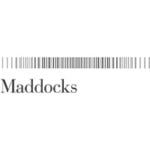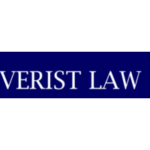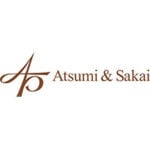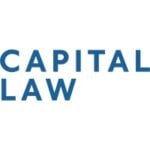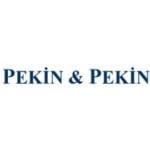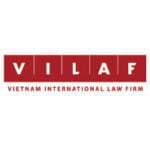-
Please briefly describe the regulatory framework and landscape of both equity and debt capital market in your jurisdiction, including the major regimes, regulators and authorities.
Equity market: Of the two Swiss stock exchanges, SIX Swiss Exchange (SIX) and the smaller BX Swiss, SIX is the third largest European stock exchange and embraces over 250 listed Swiss and international companies, some of which among the most valuable companies of the world (Nestlé, Novartis), as well as small and medium sized companies (SMEs). SIX offers various segments such as Blue Chip Shares, Mid-/Small Cap Shares, Spark Shares (for SMEs) or Global Depositary Receipts.
Debt market: The largest segment of the debt capital market in Switzerland is bonds denominated in Swiss franc (CHF). Around 2,200 bonds are currently listed on SIX, of which around two thirds are from domestic issuers. Switzerland continues to be an important hub for international bond issuances, with around one third of the listed bonds issued by foreign issuers from around 40 countries across all five continents. Further, there are over 600 international bonds admitted to trading on SIX.
The public offering of equity as well as debt instruments is governed by the Swiss Financial Services Act (FinSA), requiring offerors to publish a prospectus and, in the case of debt instruments with a derivative component, structured products or collective investment schemes, a key information document.
Listed companies are subject to the self-regulatory regime of the respective stock exchange, providing for listing requirements as well as certain disclosure obligations (ad hoc disclosure of material price-sensitive information, regular reporting obligations, disclosure of management transactions as well as publication of a corporate governance report).
The main regulatory body is the Swiss Financial Market Supervisory Authority (FINMA). FINMA supervises the stock exchanges and the financial market in Switzerland. In addition, the Swiss stock exchanges have set up private self-regulatory bodies such as, in the case of SIX, the SIX Exchange Regulation Ltd, its listing, monitoring and enforcement body. Each stock exchange has a disclosure office responsible for the disclosure of significant shareholdings. Prospectuses regarding public offerings are subject to approval by a FINMA licensed prospectus office (SIX Exchange Regulation Ltd or BX Swiss Ltd). Furthermore, public takeovers and share buyback programs are subject to review by the Swiss Takeover Board (TOB).
-
Please briefly describe the common exemptions for securities offerings without prospectus and/or regulatory registration in your market.
Securities offerings are not subject to the obligation to publish an approved prospectus if addressed only to a limited circle of investors. Furthermore, provision of information material on securities upon solicitation of the investor is exempt from the prospectus obligation provided the securities have not been advertised in advance (reverse solicitation exemption).
Should the offering address not only a limited circle of investors and the reverse solicitation exemption not be available, specific statutory exemptions from the prospectus obligations may apply. Main cases where no prospectus is required are:
- public offerings solely aimed at investors classified as professional clients under FinSA;
- offerings addressed at fewer than 500 investors;
- minimum subscriptions of at least CHF 100,000 per investor;
- securities with a minimum denomination of CHF 100,000;
- offer not exceeding a total value of CHF 8 million over a period of 12 months.
In addition, offerings of certain types of securities are exempt regardless of the investor group:
- equity securities issued outside the scope of a capital increase in exchange for previously issued equity securities;
- equity securities issued or delivered on the conversion or exchange of financial instruments of the same issuer or corporate group;
- securities offered for exchange in connection with a public takeover, provided that information exists that is equivalent in terms of content to a prospectus;
- securities offered to employees or members of the management, including under employee participation programs; or
- medium-term notes with standardised terms and wholesale market placement.
In the case of a listing, additional exemptions must apply for the transaction to be exempt from the prospectus requirement, such as that:
- the securities are equity securities which over a period of 12 months account for less than 20 per cent of the number of equity securities of the same category already admitted to trading on the same trading venue;
- the securities to be listed are already admitted to trading on a foreign trading venue deemed equivalent from a regulatory perspective (list of equivalent venues was revised by FINMA in early 2025); or
- they are securities admitted to a trading segment open exclusively to certain professional investors.
For certain types of securities, the approval of the prospectus by the prospectus office may follow the publication of the offering. Such securities include bonds, convertible or exchangeable bonds, warrant bonds, mandatory or contingent convertible bonds, write-down bonds and structured products with a term of 30 days or more. For such retrospective approval, a FINMA licensed bank or securities dealer must confirm the availability of the most relevant information on the issuer and the securities that were available at the time of the publication of the offering. The deadline for the retrospective approval is generally 60 calendar days following the start of the offering period or the admission to trading (10 calendar days for instruments with a term of 90–180 calendar days, 5 calendar days for instruments with a term of 30–89 calendar days).
-
Please describe the insider trading regulations and describe what a public company would generally do to prevent any violation of such regulations.
Swiss insider law prohibits (i) the use of inside information, defined as non-public material price-sensitive information with respect to securities which are listed on a Swiss trading venue, for trading in such securities or related derivative instruments, (ii) the transfer of inside information as well as (iii) tipping based on inside information (cf. art. 142 and 154 of the Swiss Financial Market Infrastructure Act, FMIA).
The Swiss Financial Market Infrastructure Ordinance (FMIO) provides for certain exemptions and safe harbours which are: stabilization measures during a certain period after an initial public offering within certain limits; share buybacks within certain ranges and limits; and the transfer of inside information in view of concluding an agreement (e.g. a merger agreement) or to certain service providers or authorities carrying out contractual or statutory duties (e.g. auditors or public authorities) (cf. art. 122 ff. FMIO). In the case of a transmission of inside information in view of concluding an agreement, for the safe harbour to apply the transmission must be documented by keeping an insider list and requires the declaration that inside information may not be used for trading.
Breaches of Swiss insider law are subject to administrative enforcement by FINMA and to criminal prosecution by the Federal Prosecutor. Administrative prosecution does not require proof of criminal intent or negligence and is against anyone possessing inside information. FINMA may issue a declaration of breach of financial market laws, publish such declaration (“naming and shaming”), claw back profits and, in the case of FINMA supervised financial institutions, ban responsible persons from management positions in the financial sector or from a profession. FINMA cannot impose fines. Criminal prosecution, in turn, requires establishment of criminal intent or negligence as well as pursuit of profit. In addition, criminal sanctions differ in gravity depending on whether the possessor of inside information is either a primary insider subject to a fiduciary duty e.g. as a member of the board of directors, manager or mandatee, or has received the information as a secondary insider from such primary insider or has received the information from another source, e.g. by accident (tertiary insider). Not only individuals can be criminally liable but also companies if for the reason of a lack of organization no person responsible for insider trading can be tracked, with fines up to CHF 5 million (art. 102 sec. 1 of the Swiss Penal Code).
The self-regulatory regimes of the two Swiss stock exchanges require the immediate publication of non-public material price-sensitive information as to prevent insider trading and grant equal treatment of investors (ad hoc publicity). Under the listing rules of SIX, such announcements must be flagged as “ad hoc announcement pursuant to art. 53 LR”. Publication should principally occur outside of critical trading hours (i.e. after close of trading, which is 17:40 CET in the case of equity and 17:00 CET in the case of bonds, until 90 minutes before the start of trading, which is until 7:30 CET in the case of equity and 7:00 CET in the case of bonds). Main sanctions imposed by SIX for breaches of the ad hoc publication obligation range from reprimands to fines of up to CHF 10 million (up to CHF 1 million for negligence), the publication of a press release on the breach (“naming & shaming”) and delisting.
A delay in publication of inside information by the issuer is permitted if the respective information is based on a plan or decision of the issuer (e.g. strategic M&A negotiations) and if its dissemination might prejudice the legitimate interests of the issuer (e.g. takeover negotiations). In the case of a delay of publication, the issuer must make sure that the confidentiality of the information is constantly guaranteed which requires internal regulation of the treatment of confidential information, sharing of information only on a need-to-know basis and keeping insider lists. In the case of a leak, the company must publish an ad hoc notification immediately, even during trading hours (in the latter case it must be sent to the stock exchange 90 minutes in advance).
To prevent insider trading, it is best practice for listed companies also in Switzerland to impose black-out periods during which members of the board of directors and the management as well as certain key employees are prohibited to trade in securities of the company. Ordinary black-out periods refer to trading bans during periods preceding the publication of financial results, including a short cooling-off period following the publication. Extraordinary black-out periods are imposed when the publication of inside information is delayed, e.g. in the course of an M&A transaction. Further common preventive measures are the keeping of insider lists, the adoption of a general internal insider policy, internal training programs for employees and the implementation of a leakage plan in advance of critical transactions, determining the proceedings and responsibilities regarding inside information and the swift reaction to a leak. By implementing such preventive measures, issuers reduce the risk of insider trading and the risk of being subject to administrative and criminal investigations in connection with alleged breaches of Swiss insider law as well as investigations by the stock exchange for alleged breaches of the ad hoc publication obligation and respective organisational obligations.
-
What are the key remedies available to shareholders of public companies / debt securities holders in your market?
Information contained in the prospectus that is false, misleading, or not compliant with statutory law may lead to civil prospectus liability and fines (cf. answer to question 9 for more information). Since the entry into force of the revised prospectus liability rules under FinSA, the scope of liability has become more clearly delineated and harmonized with EU practice.
Furthermore, shareholders of companies incorporated in Switzerland may, subject to certain conditions, challenge resolutions of the shareholders’ meeting and sue directors and officers personally for breaches of fiduciary duties or certain statutory obligations and recover losses of the company as well as (outside of a bankruptcy proceeding) direct individual losses. However, Swiss courts generally apply the business judgment rule, which protects directors and officers from liability if business decisions were taken in a proper decision-making process, on a sound information basis and unaffected by conflicts of interests. As per the revised Swiss corporate law effective as of 1 January 2023, shareholders have enhanced information and participation rights, including the right to submit agenda items at the shareholders’ meeting (with a reduced ownership threshold for listed companies), expanded inspection rights, covering digital company records and internal audit reports (subject to confidentiality) as well as the call for a special investigation in case of suspected irregularities.
The common interests of the holders of bonds governed by Swiss law are safeguarded by the community of bondholders. In the community of bondholders, each bondholder has a vote depending on his or her quota and decisions are typically taken by majority vote within the community. The bondholders are typically represented by a bondholder representative. In addition, usual contractual remedies (e.g. convenants) apply.
Since 2024, increased focus has also been placed by regulators and market participants on ESG-related shareholder rights, particularly around transparency, disclosure, and shareholder activism in listed companies, though no codified remedies have yet been introduced beyond general company law instruments.
-
Please describe the expected outlook in fund raising activities (equity and debt) in your market in 2025.
While Swiss capital markets remained relatively resilient in 2024, andin 2025, the environment has initially been favourable due to initial rate cuts by the Swiss National Bank, supporting continued strength in debt capital markets, particularly for CHF-denominated and ESG-linked bonds. In the course of 2025,
Global economic and geopolitical uncertainties are also affecting the Swiss capital markets. While IPO and equity market issuances are on a hold, Swiss debt finance proves to be relatively resilient. The Swiss National Bank continues to lower key interest rates, which supports issuance activity but impacts margins and capital requirements.
The FinSA regime has fully settled in practice, and regulatory conditions are considered stable.
-
What are the essential requirements for listing a company in the main stock exchange(s) in your market? Please describe the simplified regime (if any) for company seeking a dual-listing in your market.
The main requirements for the listing of equity securities on the main segment of SIX Swiss Exchange are the following (and on BX Swiss in comparison):
- a track record of at least three years (exemptions are available) (BX Swiss: one year);
- equity capital of at least CHF 25 million (BX Swiss: CHF 2 million);
- a free float of at least 20% (BX Swiss: 15%); and
- a market capitalisation of at least CHF 25 million of freely tradable shares (BX Swiss: CHF 2 million newly issued shares).
The main listing requirements for the listing of equity securities on the Sparks segment of SIX, which is designed for SMEs, are the following
- a market capitalization of less than CHF 500 million;
- a track record of at least two years;
- a shareholder base of at least 50 investors;
- an equity capital of at least CHF 12 million, of which at least CHF 8 million must be raised as part of the initial public offering unless equity capital is CHF 25 million or more; and
- a free float of at least 15% and a market capitalization of freely tradable shares of at least CHF 15 million.
It may be noted that special listing requirements apply to the listing of digital securities on the Six Digital Exchange (SDX), an exchange for digital assets based on distributed ledger technology launched by SIX in November 2021. Since its launch, 24 digital bonds have been launched on SDX by Swiss banks, public entities and the World Bank by early 2025, digital asset issuances facilitated on SDX have facilitated issuances exceeding CHF 1.5 billion, and recent regulatory guidance has further clarified the treatment of tokenized equity and structured products.
In March 2025, BX Digital has been granted the first Distributed Ledger Technology (DLT) license from FINMA. The platform enables trading and settlement of digital assets, including shares and bonds. Certain standards of BX Digital for the admission of digital assets to the trading platform apply.
In the case of dual listing, the issuer may choose the listing on SIX to be its primary or secondary listing. If the foreign issuer chooses SIX to be its secondary listing, the listing rules of the foreign stock exchange where the issuer has its primary listing apply, provided the foreign stock exchange is recognized by SIX as having equivalent standards. The listing of securities already admitted to trading on a foreign trading venue deemed equivalent from a regulatory perspective does not require the publication of an approved (listing) prospectus (and no prospectus at all if no offering occurs or an exemption from the publication of an approved prospectus applies, cf. answer to question 2). The competent prospectus offices (SIX and BX) recognise foreign prospectuses complying with recognized equivalent standards. Post-listing, foreign issuers with a secondary listing on SIX must comply with Swiss requirements regarding auditors, distribute ad hoc announcements made abroad also in Switzerland and meet the regular reporting obligations of SIX.
-
Are weighted voting rights in listed companies allowed in your market? What special rights are allowed to be reserved (if any) to certain shareholders after a company goes public?
Swiss corporate law does not allow for the issue of shares with weighted voting rights. However, it is possible to issue shares with a lower nominal value and the articles of association may provide that the voting right shall be determined by number of shares held (“one share, one vote”), regardless of their nominal value, resulting in the voting rights of the shares with the lower nominal value being increased relative to the investment. In such case, the nominal value of the shares with the highest nominal value may not exceed ten times the nominal value of the shares with the lowest nominal value. Further, the articles of association may also provide for different share classes with preferred economic rights (such as a preferred dividend right or liquidation right). Lastly, it is also possible to issue so-called participation certificates (Partizipationsscheine) and profit-sharing certificates (Genusscheine). These two types of certificates offer certain economic rights but no voting rights and are thus sometimes also referred to as non-voting shares.
-
Is listing of SPAC allowed in your market? If so, please briefly describe the relevant regulations for SPAC listing.
Yes. In comparison to the requirements for a regular listing, the following specific requirements apply in particular:
- Only stock corporations governed by Swiss law with the sole purpose of acquiring or merging with another company or several other companies (De-SPAC) may be listed as SPACs on SIX.
- Such De-SPAC must be completed within a maximum of 36 months of the listing. If no business combination occurs within this period, the SPAC must be liquidated, and the funds returned to investors.
- At least 90% of the gross proceeds from the IPO must be deposited in a blocked escrow account with a Swiss bank until completion of the De-SPAC or liquidation.
- The usual track record requirement of being in existence or presenting historical financial information for at least three business years does not apply.
- The board of directors, management, founders and sponsors of a SPAC must be subject to lock-up agreements preventing them from selling shares in the business combination for at least six months after the De-SPAC.
- SPACs must also disclose key terms of the sponsor arrangement, dilution risk, and any potential conflicts of interest as part of the listing prospectus.
-
Please describe the potential prospectus liabilities in your market.
Pursuant to article 69 FinSA, investors may sue anyone who provides information that is false or misleading or not compliant with the law in a statutory prospectus, a key information document or ‘similar communications’. The limitation to ‘anyone who provides’ continues to be interpreted as referring primarily to the issuer and its directors and officers, though advisers are generally not deemed liable, although there is no case law in this respect. ‘Similar communication’ is meant to be communication in connection with the offering or listing of securities (e.g. marketing materials or investor presentations), insofar as they are distributed in close temporal and factual connection.
In addition, the intentional omission to publish a prospectus in time or false statements and omission of material facts in the prospectus are sanctioned by criminal law with fines of up to CHF 500,000.
-
Please describe the key minority shareholder protection mechanisms in your market.
Swiss corporate law offers relatively few rights specifically tailored to minority shareholders. Shareholders or group of shareholders holding 5% or more of stated capital or voting rights of a listed company may demand to convene a shareholders’ meeting or to conduct a special investigation. In addition, shareholders or group of shareholders holding 0.5% or more of stated capital or voting rights of a listed company may request to add an own agenda item to the shareholders’ meeting and request motions for the shareholders’ meeting. For further remedies generally available to shareholders see answer to question 4.
-
What are the common types of transactions involving public companies that would require regulatory scrutiny and/or disclosure?
Any going public of a company by listing securities on a trading venue requires the publication of a prospectus and the approval of the prospectus by a competent prospectus office (the stock exchange) as well as the approval of a listing request by the stock exchange. For exemptions from the obligation to publish a listing prospectus see answer to question 2. Capital increases by listed companies involving the issuance of new shares also require a listing application to the stock exchange for the admission of such new shares to trading.
Any purchase or sale of shares of a company listed on a Swiss stock exchange as well as derivative instruments related to such shares must be disclosed to the disclosure office of the respective stock exchange as well as to the company if certain thresholds are met or crossed (3, 5, 10, 15, 20, 25, 33 ⅓, 50, 66 ⅔ % of the voting rights). In addition, groups of shareholders acting in concert and jointly touching such thresholds are subject to the disclosure obligation.
The purchase of more than 33 ⅓ % of the voting rights, by an individual investor or a group acting in concert, of a company listed on a Swiss stock exchange triggers the obligation to publish a tender offer for all shares of the company. Swiss takeover law requires a minimum price for mandatory bids, defined as the higher of the volume-weighted average price (VWAP) of the last 60 trading days or the highest price that the offeror has paid for equity securities of the company in the preceding twelve months.
Public offers for all or part of the shares of a company listed on a Swiss stock exchange are subject to Swiss takeover law and to the review of the TOB, essentially requiring a prospectus of the bidder and a statement of the board of directors of the target. For special cases, exemptions from all or certain requirements are available.
Share buyback programs are equally subject to Swiss takeover law. Within certain limits, such programs benefit from an exemption from the respective provisions, including the prospectus requirement. To benefit from an exemption, the buyback program must be announced to the TOB in advance of the publication of the program. The TOB may request further documents and impose certain requirements.
Furthermore, mergers of public companies as well as the delisting following a merger or takeover require a request to the listing office of the applicable Swiss stock exchange and are subject to the respective procedural rules.
-
Please describe the scope of related parties and introduce any special regulatory approval and disclosure mechanism in place for related parties’ transactions.
Apart from the general duty of loyalty, the limits to the business judgment rule in the case of conflicts of interests and a general obligation of directors and officers to inform the board of directors immediately and comprehensively on any conflicts of interest (art. 717a sec. 1 of the Swiss Code of Obligations, CO), Swiss corporate law requires a contract to be in written form if, when concluding the contract, a company incorporated in Switzerland is represented by the person with whom it is concluding the contract, provided it exceeds a value of CHF 1,000 (art. 718b CO).
Under the directive of SIX on the disclosure of management transactions, transactions in shares of a company listed on SIX or related financial instruments by a related party of a member of the board of directors or the management board must be disclosed to the company and published by the company on the reporting platform of SIX. A related person may be a relative or a corporation controlled by the board member or manager.
The SIX listing rules require accounting based on a recognized reporting standard such as IFRS, US GAAP or Swiss GAAP FER, including the respective standards on related party transactions. SIX investigates and sanctions breaches of the adopted reporting standard.
Furthermore, at arm’s length standards apply to upstream and cross-stream loans or guarantees of companies incorporated in Switzerland.
-
What are the key continuing obligations of a substantial shareholder and controlling shareholder of a listed company?
Swiss corporate law does not impose any obligations on substantial or controlling shareholders of a stock corporation incorporated in Switzerland. Fiduciary duties limit the board member representing the substantial or controlling shareholder in the board of directors of the company in sharing information with the shareholder and pursuing its interests.
The key continuing obligation of a substantial shareholder of a company listed on a Swiss stock exchange is to disclose the reaching, exceeding or falling below of certain disclosure thresholds (for details see answer to question 11). Further disclosure obligations apply in the context of takeovers subject to Swiss takeover law.
-
What corporate actions or transactions require shareholders’ approval?
Swiss statutory law requires shareholder approval for the following corporate actions:
- Approval of the annual financial statements and annual report as well as the annual sustainability report (if required);
- Allocation of the balance sheet result and determination of dividend (including interim dividends and repayment of statutory capital reserves);
- Election of the chairperson and members of the board of directors, the members of the audit committee, the auditor and the independent voting rights representative;
- Approval of the compensation of the members of the board of directors and executive management;
- Discharge from liability of the members of the board of directors and executive management;
- Amendments to the articles of association;
- Delisting of the company’s equity securities;
- Other matters reserved by law to the shareholders’ meeting.
The articles of association may introduce additional approval requirements.
-
Under what circumstances a mandatory tender offer would be triggered? Is there any exemption commonly relied upon?
The purchase of more than 33 ⅓ % of the voting rights, by an individual investor or a group acting in concert, of a company listed on a Swiss stock exchange triggers the obligation to publish a tender offer for all shares of the company.
Shareholders exceeding this threshold already at the time of the listing are not subject to this obligation. Furthermore, the obligation does not apply if the voting rights have been acquired as a result of a donation, succession or partition of an estate, matrimonial property law or execution proceedings.
Further exemptions can be requested and are granted by the TOB on a case-by-case basis, in particular if:
- the transfer of voting rights only occurs within a group acting in concert;
- the threshold is exceeded as a result of a decrease in the total number of voting rights of the company;
- the threshold is exceeded only temporarily;
- the securities have been acquired without consideration or on exercise of pre-emptive rights pursuant to a share capital increase;
- the securities have been acquired for reorganisation purposes;
- the threshold is exceeded during a restructuring resulting from a capital reduction immediately followed by a capital increase for the purpose of offsetting a loss;
- banks or securities firms, independently or as a syndicate, acquire equity securities as part of an issue and undertake to sell the number of equity securities exceeding the threshold within three months after exceeding the threshold and the sale actually takes place within this period.
Furthermore, the TOB may regard an exemption as justified if:
- the acquiring person cannot control the target company because another person or group has a higher voting share
- a previous acquisition was made indirectly, provided this acquisition was not one of the main purposes of the transaction and the interests of the target company’s shareholders remain preserved
In the rich practice of the TOB, various kinds of exemptions have been granted, e.g., for triangular reverse mergers, under the condition that shareholders are provided with information equivalent to the information they would receive through an offering prospectus of the bidder under Swiss takeover law.
-
Are public companies required to engage any independent directors? What are the specific requirements for a director to be considered as “independent”?
There is no Swiss legal independency requirement for directors.
However, the non-binding Swiss Code of Best Practice in Corporate Governance (SCBP) issued by the Swiss corporate union economiesuisse, which is regarded as best practice for listed companies in the Swiss market, requires that the majority of the members of the board of directors be independent members.
The SCBP defines independent directors as non-executive members of the board who
- have never been a member of the executive board or were a member more than three years ago
- have never served as lead auditor of the external auditor or served as lead auditor more than two years ago and
- have no or comparatively minor business relations with the company.
-
What financial statements are required for a public equity offering? When do financial statements go stale? Under what accounting standards do the financial statements have to be prepared?
For an equity offering for which a prospectus must be published, the following financial statements are required:
- the last two audited published financial reports containing the annual financial statements for the last three full financial years (or, if a track record exemption is granted: for the shorter period), drawn up in accordance with a recognised financial reporting standard and audited by the auditors;
- for companies incorporated in Switzerland: in addition, audited statutory financial statements for the last financial year if relevant for the distribution of profits (which is usually the case);
- for newly founded companies: audited opening balance sheet or audited balance sheet after any contribution in kind has been made.
In the case of significant structural changes (e.g. economic continuation of an existing company, business operations in a new legal structure; carve-out of operating companies), SIX requires that additional financial statements as well as pro forma financial information be presented in the prospectus.
The balance sheet date of the last audited annual financial statements may be no more than 18 months in the past on the date the prospectus is published. In addition, in practice auditors usually adhere to the 135-day rule.
A company publicly offering debt or equity securities is by Swiss statutory law required to publish financial statements in accordance with a generally accepted accounting standard. In the case of a listing on SIX, SIX requires financial reporting according to a standard recognized by SIX, which basically is IFRS, US GAAP or, for issuers under some regulatory standards, Swiss GAAP FER. Foreign issuers can apply the standard of their home country, if approved by the Regulatory Board of SIX.
-
Please describe the key environmental, social, and governance (ESG) and sustainability requirements in your market. What are the key recent changes or potential changes?
Since 1 January 2023, listed companies incorporated in Switzerland are required to publish an annual sustainability report on environmental matters, if they exceed certain thresholds (balance sheet total of CHF 20 million or revenues of CHF 40 million as well as more than 499 full-time employees). The report must cover environmental issues material to the company in general and, in any case, matters of climate, social issues, labour, human rights and the fight against corruption. The report must be approved and signed by the board of directors and approved by the general meeting of the shareholders (art. 964a et seqq. CO). The company may issue a report pursuant to international standards but must make sure that it complies with the Swiss statutory information requirements. The Climate Reporting Ordinance of the Swiss Federal Council specifies the obligations regarding the disclosure on climate matters in the sustainability report, mainly referring to the recommendations of the Task Force on Climate Related Financial Disclosures (TCFD) on a comply or explain basis. While the current Swiss regime is modelled after the EU’s former Non-Financial Reporting Directive (NFRD), the Swiss government is actively evaluating a potential alignment with the more extensive Corporate Sustainability Reporting Directive (CSRD), which has already entered into force in the EU. In early 2025, the Swiss government decided to monitor the current move in the EU towards a simplification of sustainability related regulation and to decide on the further steps in Q1 of 2026.
Furthermore, any company incorporated in Switzerland must implement a management system providing for due diligence related to risks regarding child labour and as conflict minerals and metals as well as publish a respective annual report (art. 964j et seqq. CO, as specified in the Ordinance on Due Diligence and Transparency in relation to Minerals and Metals from Conflict-Affected Areas and Child Labour). The law provides for exemptions for small or medium enterprises, small quantities of metals and minerals as well as for companies with a minimal risk of child labour in their value chain.
In addition, companies involved in the extraction of minerals, oil or natural gas or in the harvesting of timber in primary forests must publish an annual report on payments made to governmental bodies (art. 964d CO).
Further requirements apply to financial institutions under the supervision of FINMA which requires special reporting of climate risks and of related risk management. Furthermore, FINMA has issued guidelines against greenwashing for collective investment schemes. In addition, FINMA has released a Circular on the transparency and management of nature-related financial risks of banks and insurance companies which will enter into force on 1 January 2026.
As mentioned, the Swiss Federal Council is assessing a possible adjustment of the current Swiss sustainability reporting regime to the CSRD, while monitoring the developments in the EU. In addition, the Federal Council has published a position paper against greenwashing in the financial sector, providing certain guidelines (e.g. declaring that labelling the avoidance of ESG risks as sustainable is deemed greenwashing) and has instructed the Swiss State Secretariat for International Finance (SIF) to propose a respective regulation. After main industry associations released revised self-regulation implementing the principles of the position paper of the Federal Council, the Federal Council abstained from releasing an ordinance.
-
What are the typical offering structures for issuing debt securities in your jurisdiction? Does the holding company issue debt securities directly or indirectly (by setting up a SPV)? What are the main purposes for issuing debt securities indirectly?
In the Swiss market, debt securities are either offered directly by corporate issuers or indirectly through a special purpose vehicle (SPV). One reason for setting up an SPV is that Switzerland does not provide for the concept of a trust and the SPV can substitute for certain tasks of the trustee in the structure. Also, foreign SPV structures can – under certain circumstances – be used to mitigate withholding tax risks.
-
Are trust structures adopted for issuing debt securities in your jurisdiction? What are the typical trustee’s duties and obligations under the trust structure after the offering?
As there is no substantive trust law in Switzerland, no trust can be established under Swiss law. A usual substitute is setting up an SPV (cf. answer to question 19). If a trust is required in the structure, it can be established under foreign law, even if the terms and conditions of the notes are governed by Swiss law.
-
What are the typical credit enhancement measure (guarantee, letter of credit or keep-well deed) for issuing debt securities? Please describe the factors when considering which credit enhancement structure to adopt.
In the Swiss market, typical credit enhancement measures are guarantees and the assignment of assets. In addition, covered bonds as well as asset-backed securities are used, particularly in securitization and real estate financing transactions. Costs and the rating required for the bond influence the choice.
-
What are the typical restrictive covenants in the debt securities’ terms and conditions, if any, and the purposes of such restrictive covenants? What are the future development trends of such restrictive covenants in your jurisdiction?
Restrictive covenants are tailored to the specific financing transaction, although a trend towards standardization is persisting. They usually comprise a basic set that may include limiting additional financial liabilities, negative pledge, potential restrictions on asset disposals, potential limitations on mergers and acquisitions as well as changes to the organizational structure, and possibly a constraint on business transformations. ESG-linked instruments increasingly include sustainability performance targets with potential pricing adjustments or trigger-based reporting covenants. The market also reflects a stronger focus on transparency and alignment with international sustainability frameworks, influencing covenant design.
-
In general, who is responsible for any profit/income/withholding taxes related to the payment of debt securities’ interests in your jurisdiction?
In Switzerland, the issuer of the debt securities is generally responsible for withholding tax on interest payments to debt security holders. Interest payments on bonds and similar debt securities by a Swiss issuer are generally subject to a 35% withholding tax. Such withholding tax may be recovered in full by Swiss lenders and partially or in full by lenders that (i) are tax resident in a jurisdiction that has as a double tax treaty in place with Switzerland and (ii) are qualified to benefit from treaty protection. The bondholders are responsible for the payment of any profit/income taxes. For Swiss-resident bondholders interest payments are generally subject to income tax. The abolition of the withholding tax on newly issued Swiss domestic bonds was rejected in a federal popular vote in 2022.
-
What are the main listing requirements for listing debt securities in your jurisdiction? What are the continuing obligations of the issuer after the listing?
Under the listing rules of SIX, the following requirements apply:
Requirements concerning the issuer (which, alternatively, can be fulfilled by the guarantor):
- company in existence as a company for at least three years;
- the last two years’ audited annual financial statements presented in accordance with the financial reporting standards applicable to the issuer;
- recognized accounting standard (IFRS, US GAAP or under certain conditions, local GAAPs);
- equity capital of at least CHF 25 million on the first day of trading (on a consolidated basis);
Requirements concerning the debt security:
- bonds governed by the laws of a OECD member state; other jurisdictions may be recognized upon request;
- aggregate nominal value of a bond issue at CHF 20 million as a minimum;
- appointment of a paying agent providing services related to interest and capital, as well as all other corporate actions in Switzerland.
The listing of convertible securities on SIX requires that the equity into which the securities are convertible is already listed or are being listed at the same time.
Issuers of asset-backed securities do not need to fulfil the three-year track record and the minimum equity capital of CHF 25 million.
Continuing obligations are the obligation to publish annual financial reports as well as material non-public price-sensitive information.
Switzerland: Capital Markets
This country-specific Q&A provides an overview of Capital Markets laws and regulations applicable in Switzerland.
-
Please briefly describe the regulatory framework and landscape of both equity and debt capital market in your jurisdiction, including the major regimes, regulators and authorities.
-
Please briefly describe the common exemptions for securities offerings without prospectus and/or regulatory registration in your market.
-
Please describe the insider trading regulations and describe what a public company would generally do to prevent any violation of such regulations.
-
What are the key remedies available to shareholders of public companies / debt securities holders in your market?
-
Please describe the expected outlook in fund raising activities (equity and debt) in your market in 2025.
-
What are the essential requirements for listing a company in the main stock exchange(s) in your market? Please describe the simplified regime (if any) for company seeking a dual-listing in your market.
-
Are weighted voting rights in listed companies allowed in your market? What special rights are allowed to be reserved (if any) to certain shareholders after a company goes public?
-
Is listing of SPAC allowed in your market? If so, please briefly describe the relevant regulations for SPAC listing.
-
Please describe the potential prospectus liabilities in your market.
-
Please describe the key minority shareholder protection mechanisms in your market.
-
What are the common types of transactions involving public companies that would require regulatory scrutiny and/or disclosure?
-
Please describe the scope of related parties and introduce any special regulatory approval and disclosure mechanism in place for related parties’ transactions.
-
What are the key continuing obligations of a substantial shareholder and controlling shareholder of a listed company?
-
What corporate actions or transactions require shareholders’ approval?
-
Under what circumstances a mandatory tender offer would be triggered? Is there any exemption commonly relied upon?
-
Are public companies required to engage any independent directors? What are the specific requirements for a director to be considered as “independent”?
-
What financial statements are required for a public equity offering? When do financial statements go stale? Under what accounting standards do the financial statements have to be prepared?
-
Please describe the key environmental, social, and governance (ESG) and sustainability requirements in your market. What are the key recent changes or potential changes?
-
What are the typical offering structures for issuing debt securities in your jurisdiction? Does the holding company issue debt securities directly or indirectly (by setting up a SPV)? What are the main purposes for issuing debt securities indirectly?
-
Are trust structures adopted for issuing debt securities in your jurisdiction? What are the typical trustee’s duties and obligations under the trust structure after the offering?
-
What are the typical credit enhancement measure (guarantee, letter of credit or keep-well deed) for issuing debt securities? Please describe the factors when considering which credit enhancement structure to adopt.
-
What are the typical restrictive covenants in the debt securities’ terms and conditions, if any, and the purposes of such restrictive covenants? What are the future development trends of such restrictive covenants in your jurisdiction?
-
In general, who is responsible for any profit/income/withholding taxes related to the payment of debt securities’ interests in your jurisdiction?
-
What are the main listing requirements for listing debt securities in your jurisdiction? What are the continuing obligations of the issuer after the listing?
